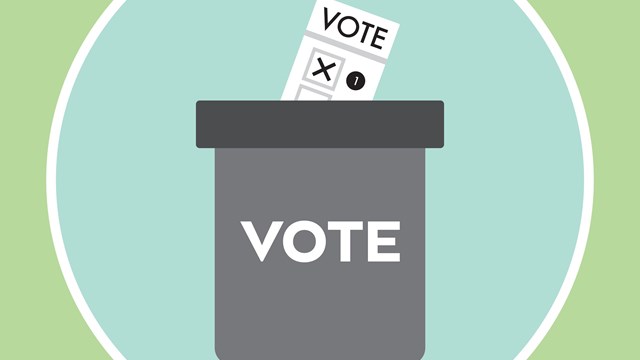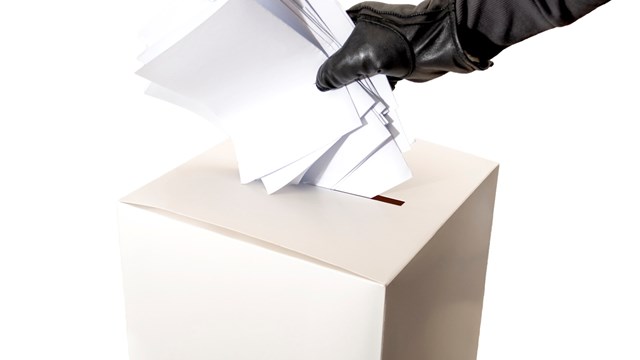
Imagine that your building's sponsor has planted a friend or business partner in one of the units he owns in the building.
This shareholder then decides to run for a seat on the board and with the help of the sponsor, wins. In addition to any sponsor held seats already on the board, the sponsor now has an additional ally and is closer to gaining control of the board and possibly swaying key decisions for the building in his favor.
This may sound like an extreme way to rig an election but it is conceivable. So how does a board make sure that the annual election is honest and that no one is trying to tamper with the outcome? The first and easiest way is to understand the voting process that takes place in your building. The next step is to monitor each step of that process to make sure that everything is done correctly. There are even companies that specialize in handling board elections that can come in and guarantee an honest election
Most co-op and condo buildings use one of two types of voting: straight and cumulative. Straight voting is the simplest and easiest type of voting. Say you own 100 shares of stock in the co-op corporation or common interest allocations in a condo association. If there are seven seats to be filled on the board, you can vote the full 100 shares for each of the available seats, casting a total of 700 votes. In cumulative voting, which only occurs in co-ops, you can distribute your 700 votes however you want. For example, if you really want one person to win, you can cast all 700 votes for that person, which would obviously stack the scales to his advantage.
Robert Kraus, an attorney at Rosen & Livingston, points out that, If cumulative voting is not mentioned in the Certificate of Incorporation, cumulative voting cannot exist. If cumulative voting is held when the Certificate does not mention that it exists, the vote can be challenged by any one group of shareholders, who will always win in court.
To find out what type of voting exists in your building, look in the by-laws. The by-laws should also state how the election should be run. In co-ops these rules are based on the Business Corporation Law, explains Dennis Greenstein, a partner at Haas, Greenstein, Cohen, Gerstein and Starr. This also explains how each ballot should be filled out. It also has a section that answers various questions that come up on a regular basis, like what to do with multiple proxies.
For many buildings, the process of conducting the annual election is left up to the managing agent who receives the proxies, oversees the election and counts the votes. Usually the role of the managing agent is to act as the appointed inspector and to tabulate the votes, says David Kuperberg of Cooper Square Realty, a management company located in Manhattan. We also prepare the ballots and, in instances in which a building has had a poor showing, we will help with notification and distributing proxies. A proxy is used when a voter is unable to be present and gives his voting rights to another shareholder to cast for him.
Working with the building's attorney, the managing agent determines who will draft notices announcing the meeting and the handling of proxies. Then the agent typically receives the proxies ffb and keeps a tally to make sure that a quorum can be maintained, says Brian Peters, director of management at Rose Associates, Inc. a management firm based in Manhattan. A quroum is the minimum number, usually two-thirds, of shareholders who must vote in the election in order to make it valid.
The shareholders or board members may also ask for two or more inspectors of election to handle most of the administrative work involved in handling the election. The inspectors of election are usually employees of the management firm but they can be anyone the board appoints.
The votes are usually tallied in the managing agent's office the next day with representatives from all sides present along with the building's attorney. The type of ballots can vary depending on the building and the method the management firm or election company uses. Some can be simple sheets of paper where shareholders mark their choices or they can be computer generated cards. They are then either collected in a lock box or tabulated into a small ballot machine. At times the management firm will tabulate votes by a show of hands.
Horace Bullard, board president of a 450-unit co-op in the Bronx, knows first-hand about the problems that can occur when the votes are counted. At one point, we had a sponsor who was very reluctant to relinquish control of the board. After the election he counted the votes and determined that he had won. When the vote was challenged and everything was recounted it was discovered that he had miscounted and had lost the election.
Robert Kraus was witness to an election where the correct procedures of voting were not followed according to the by-laws. Cumulative voting was conducted in this building without the provision in the Certificate of Incorporation. When it was brought up that cumulative voting could not take place unless it is stated in the Certificate, the vote was conducted anyhow.
Kraus points out that if there is a history of rancor in the co-op this is a good sign that there might be problems. You can arrange for someone like the Honest Ballot Association to come in, in this kind of situation, he suggests. They are as impartial as you can get.In the vast majority of buildings, however, elections run without a hitch. I have never seen a dishonest election. I have seen hotly contested elections but never one that was dishonest, states Kuperberg. Peters agrees, saying, I have never heard of a rigged or tampered election. However, he concedes, I have been aware of contested elections or where the judgments of proxies have been questioned.
According to Kuperberg, most meetings are conducted on an informal basis and this is where some problems may occur. One of the most popular problems that arises is multiple proxies and determining which ones are valid. The other place where a problem can occur is during the tallying of votes.
There are some things we have seen on a regular basis, like proxies being sent back to an office or person who has a stake in the elections. There have been missing proxies or other proxies suddenly appear, says Maralin Falik, executive director of the Honest Ballot Association. Phyllis Weisberg, a partner in the law firm Kurzman, Karelson and Frank, has also heard of cases where proxies have been forged or three proxies have shown up for the same person. In this situation the latest proxy supersedes the previously dated proxies, she explains.
If you feel that an election is not on the up and up or don't want to take any chances, companies such as the Honest Ballot Association and the Co-op Election Company can handle the entire process, from posting notices about the meeting to mailing proxies to receiving the proxies to the actual tallying of the votes. They will come into the building and set up wherever the election or meeting space is held and run the whole show.
The Honest Ballot Association (HBA) was founded in 1909 by Teddy Roosevelt and handles a ffb pproximately 80 to 100 elections a year. They are a not-for-profit organization and have a sliding price scale that depends on what type of services are requested and the size of the building. For small buildings, the fee can be anywhere from $500 to a $1,000 dollars. For larger buildings it will be more.
To be brought in to an election HBA needs to have the written approval of everyone involved in the election (incumbents, challengers and managing agent). We can't come in unless both sides give approval, explains Falik. We usually request that a statement be given from all sides that our services are needed. Their main goal is to make sure that whatever the outcome, everybody is in agreement and understands the results.
The Co-op Election Company has been in business for 15 years and their president, Joyce Miller, also serves on the board of her co-op. Like HBA, the Co-op Election Company can handle any or all aspects of an election. We speak with only one person of authority in the building, says Miller. This is usually the managing agent.
The Co-op Election Company fee varies depending on the size of the building and type of work done but can range from $600 to $5,000 dollars. It is usually a few dollars per unit. This is inexpensive and it is important to have responsible people running the building, says Miller. Once we are involved people tend to be less likely to do anything when they know a watchdog is overseeing everything.
There are many steps that can be taken to guarantee that an honest election takes place even without bringing in a professional election company. Boards should make sure that there is early involvement with legal counsel and the managing agent so that everything can be coordinated properly, Brian Peters suggests.
Make sure that the proxies are viewed and verified and that the ballots are correct, adds Greenstein. Make sure there is an updated list of shareholders and that they are eligible to vote. Also check that they have the proper number of shares. If these are miscalculated the election can be tilted. Falik and Miller also stress that all the signatures on the proxies be verified and that the shareholder has signed it, not a spouse or child.
Kraus advises, Even if people feel and know that an election is not on the up and up it still pays to vote and to make sure that everyone on the board watches the count and pays attention to it. The building's attorney should be present to make sure that the by-laws are being followed and lend an air of credibility. He or she should also be present at the tallying of votes in case any questions arise. The main goal is to have an election that is fair and above all, honest. This is where having a third party involved is important, says Joyce Miller. It takes the emotion and heat out of it. You ultimately have to live with these people. You want there to be harmony in the building.









11 Comments
Leave a Comment